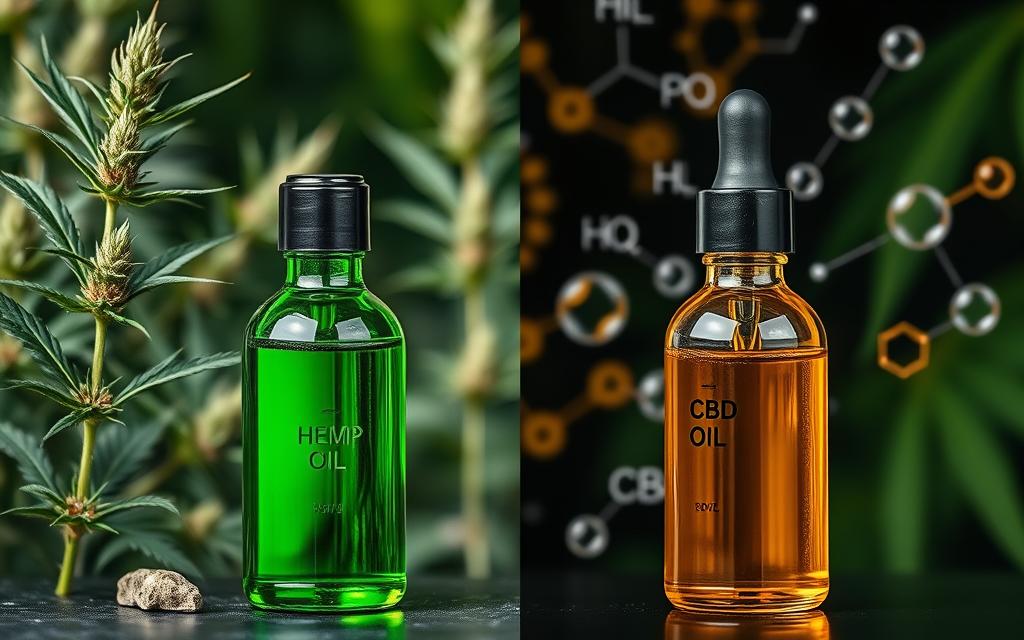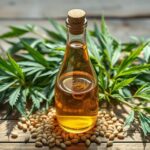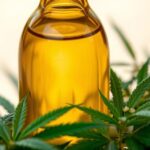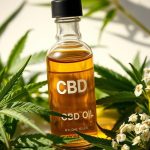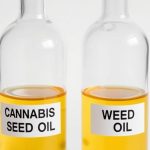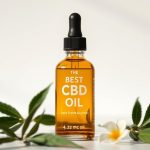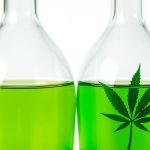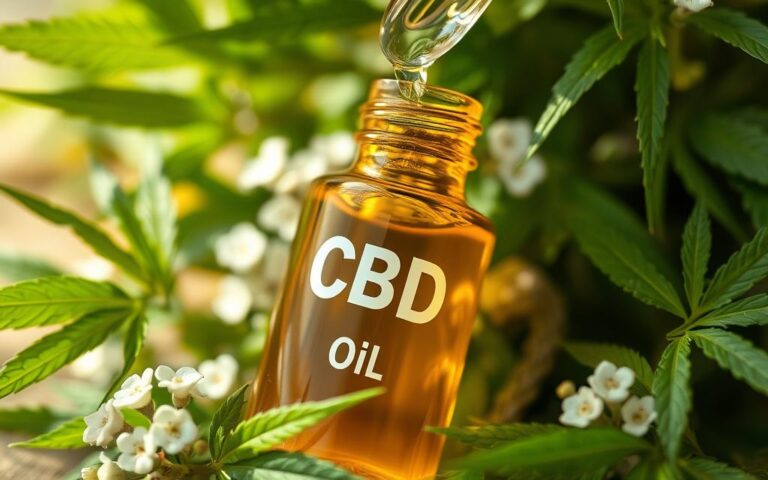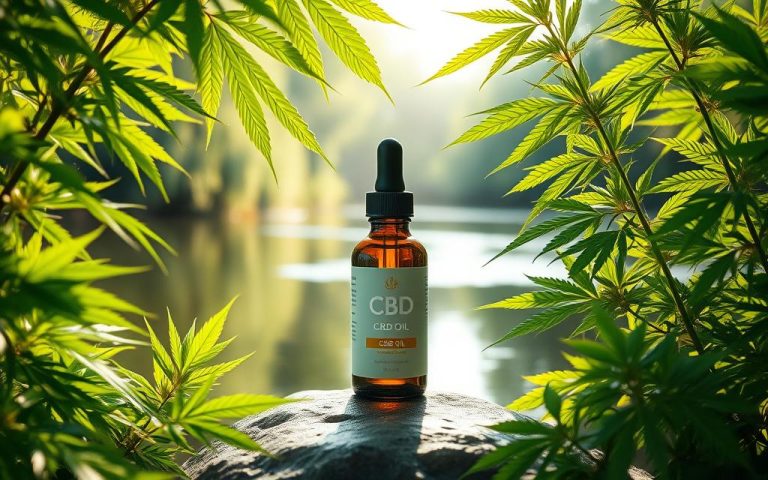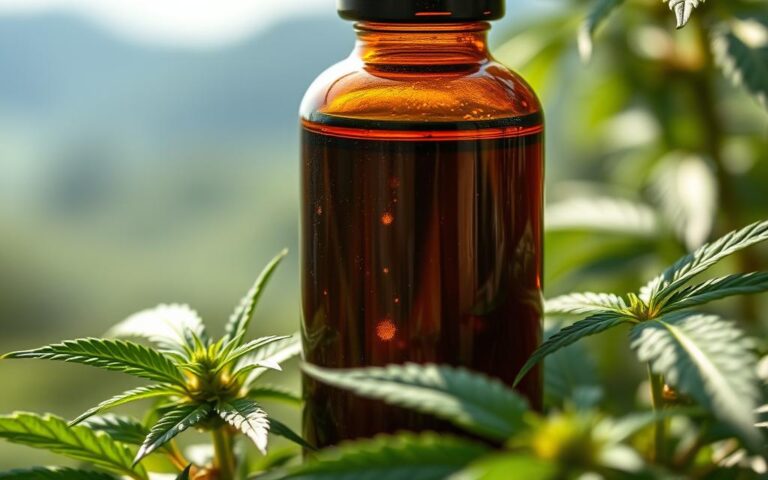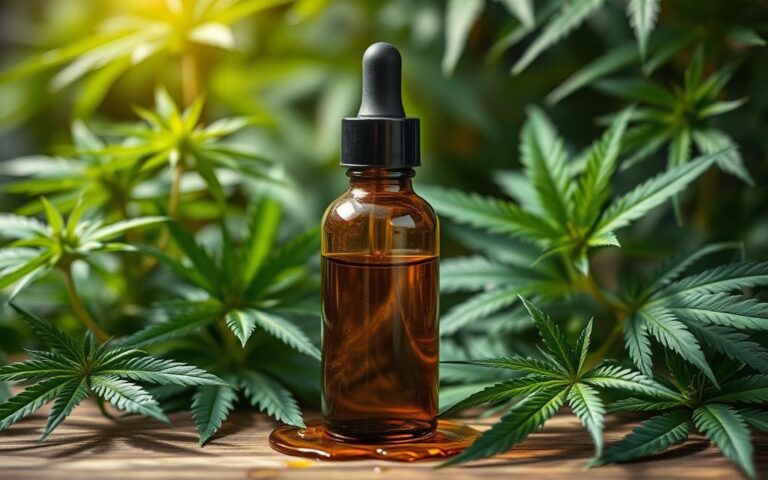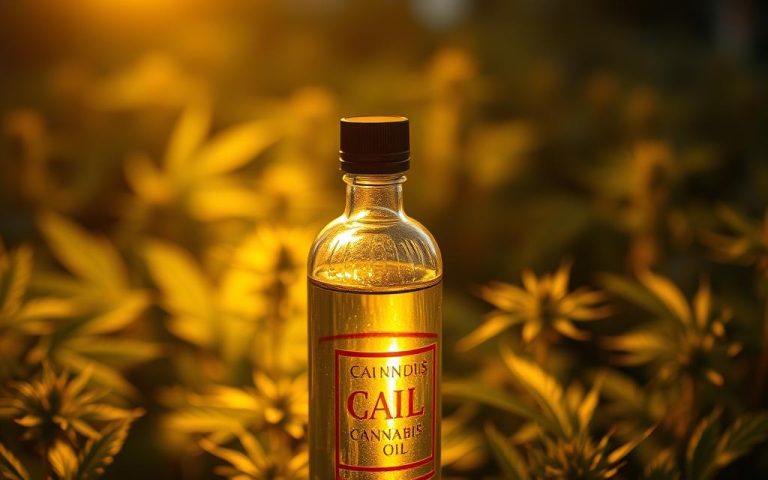Are Hemp Oil and CBD Oil the Same? Key Differences Explained
Hemp oil and CBD oil are often confused with each other. But they are different in what they contain, how they are used, and their effects. Hemp oil, also known as hemp seed oil, is full of nutrients like omega-6 and omega-3 fatty acids. It also has gamma-linolenic acid, B vitamins, and vitamin D.
CBD oil, on the other hand, comes from the hemp plant’s leaves, flowers, and stalks. It has cannabidiol, a compound that doesn’t make you high but might help your health. Knowing the difference between hemp oil and CBD oil is key to choosing the right one for you. This article will explain the main differences, including their benefits and uses.
Hemp oil and CBD oil are quite different. Hemp oil is made by pressing hemp seeds, giving you a healthy oil. CBD oil, though, is made from the hemp plant using different methods. Hemp oil has less than 0.3% THC, while CBD oil has varying levels of CBD and other compounds. This info will help you understand which one is best for you.
We will look at the main differences between hemp oil and CBD oil. This includes where they come from, how they are made, their chemical makeup, and their health benefits. By knowing these differences, you can appreciate the unique benefits of each product. This will help you make the best choice for your needs.
Understanding Hemp Oil and CBD Oil: Basic Definitions
Hemp oil and CBD oil are often confused with each other. But they are not the same. Hemp oil comes from cold-pressing hemp seeds. It’s full of omega-rich oils. CBD oil, on the other hand, is made from the leaves, flowers, and stalks of hemp plants. It’s all about the CBD compound.
Good Hemp says hemp seed oil is about 35% oil. It’s packed with good fats like Omega 3 and Omega 6. CBD oil, though, is all about the CBD from hemp flowers.
What is Hemp Oil?
Hemp oil is a nutritional powerhouse. It’s full of essential fatty acids, protein, vitamin E, and minerals. But it doesn’t have THC, so it won’t get you high.
What is CBD Oil?
CBD oil works with your body’s endocannabinoid system. It might help with inflammation and other health issues. People use it for its medicinal benefits.
Common Misconceptions About Both Oils
Many think hemp oil and CBD oil are the same. But they’re not. Hemp oil is for nutrition, while CBD oil is for health benefits. Another myth is that hemp oil has THC. It doesn’t. CBD oil, though, can have up to 0.3% THC, which is legal in many places.
- Hemp oil is rich in essential fatty acids and is used as a dietary supplement.
- CBD oil is used for its medicinal properties and interacts with the endocannabinoid system.
- Hemp oil does not contain THC, while CBD oil may contain up to 0.3% THC.
The Source Material: Cannabis and Hemp Plants
Hemp seed oil and CBD oil come from the cannabis plant. But they are very different in what they contain, how they’re used, and the laws around them. The hemp plants are grown and picked for their seeds, leaves, and flowers.
Medical News Today says hemp seed oil and CBD oil both come from the cannabis plant. But, hemp is legally defined as the Cannabis sativa plant with less than 0.3% THC on dry weight.
Hemp seed oil and CBD oil are made from different parts of the hemp plants. Hemp seed oil comes from the seeds. CBD oil is made from the leaves, flowers, and stalks. This means they have different chemicals and benefits.

- Hemp seed oil is full of omega-3 and omega-6 fatty acids, B vitamins, vitamin D, and antioxidants.
- CBD oil is made from the leaves, flowers, and stalks of the hemp plants. It’s rich in cannabinoids like CBD.
- The quality of CBD oil depends on how it’s made. This affects the terpenes, cannabinoids, and essential oils it contains.
Extraction Methods and Production Processes
Hemp oil and CBD oil are made through different ways. Hemp oil comes from hemp seeds using cold-pressing. CBD oil, on the other hand, is made from the plant’s leaves, flowers, and stalks. Extraction methods like ethanol and supercritical CO2 are used for CBD oil.
These methods help keep important cannabinoids and terpenes in the oil. This makes the final product of high quality. Making sure the oil is pure and strong is key. Hemp oil making is simpler and cheaper than CBD oil.
- Hemp oil comes from seeds, while CBD oil is from leaves, flowers, and stalks.
- Hemp oil making is simpler and cheaper, but CBD oil production is more complex and expensive.
- Both hemp oil and CBD oil need strict quality control to ensure they are pure and strong.
Quality control is very important for both hemp oil and CBD oil makers. They must test for purity, strength, and any harmful stuff. Knowing how hemp oil and CBD oil are made helps people choose better.
Chemical Composition and Active Compounds
Hemp oil and CBD oil have different chemical makeups. Hemp oil comes from hemp seeds and is full of good fats and antioxidants. CBD oil, made from hemp leaves and flowers, has CBD and other cannabinoids.
Key compounds in hemp oil include:
- Omega-6 and omega-3 fatty acids
- Gamma-linolenic acid
- Stearadonic acid
- Tocopherol
These substances might help lower inflammation and boost heart health. CBD oil, with its CBD, could help with anxiety and pain.
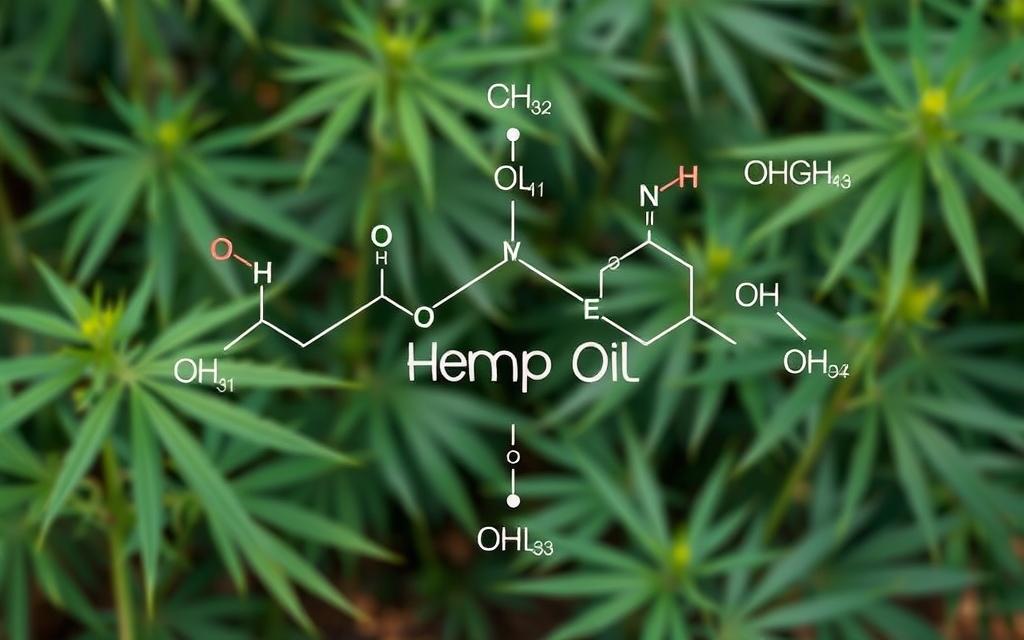
Hemp oil and CBD oil are chemically different. Hemp oil is rich in good fats, with a balanced omega-6 to omega-3 ratio. CBD oil, with its cannabinoids, might offer health benefits. Knowing what’s in hemp oil and CBD oil helps us see their health benefits.
Are Hemp Oil and CBD Oil the Same? Understanding the Core Differences
Hemp oil and CBD oil have key differences. Hemp oil is full of healthy fats like Omega 3 and Omega 6. It’s mainly used as a food supplement because of its nutritional value.
Chemical Properties
Hemp oil has about 35% oil from hemp seeds. It also has small amounts of cannabinoids like CBD or THC. CBD oil, made from hemp flowers, has more important compounds, including cannabinoids.
Therapeutic Properties
CBD oil helps with physical and mental health. It eases pain, muscle aches, and helps with sleep. Hemp oil is good for the skin and as a nutrient but doesn’t have CBD oil’s health benefits.
Legal Classifications
Hemp oil is easy to find and cheaper because it doesn’t have strong cannabinoids like CBD oil. CBD oil, made from hemp and marijuana plants, has stricter legal rules.
Here’s a quick comparison:
| Oil Type | Chemical Properties | Therapeutic Properties | Legal Classifications |
|---|---|---|---|
| Hemp Oil | Rich in unsaturated fats | Nutrient supplement, skin care | Widely available, less expensive |
| CBD Oil | Contains essential compounds, including cannabinoids | Supports physical and mental well-being, pain relief | Subject to different legal classifications |
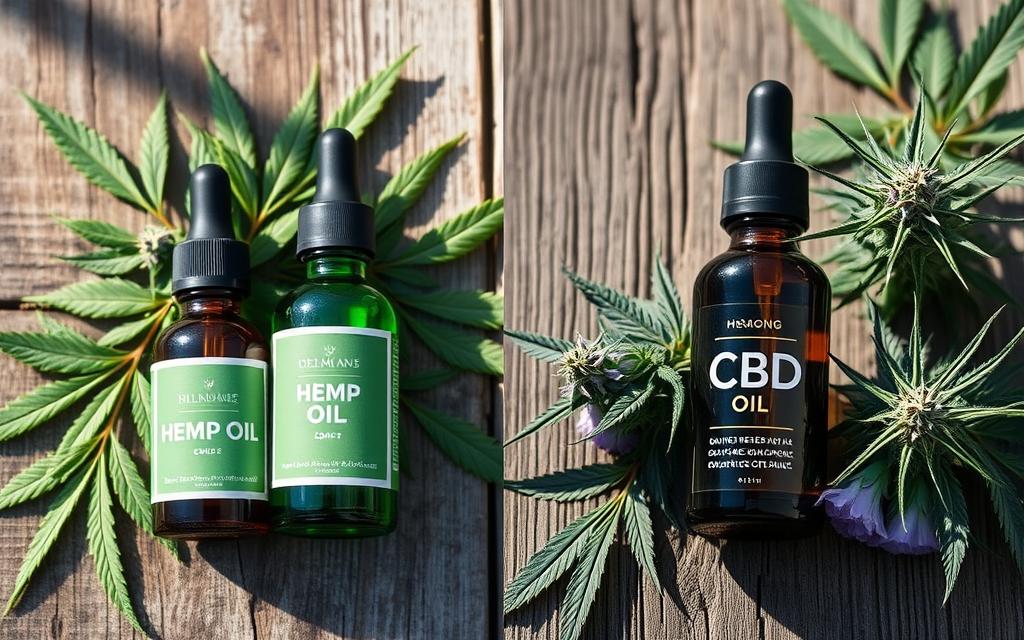
Health Benefits and Uses of Hemp Oil
Hemp oil is known for its health benefits and uses. It’s full of essential fatty acids like omega 3 and 6. These are good for your heart and immune system. Medical News Today says it can help with constipation and heart health.
Some of the key uses of hemp oil include:
- Relieving constipation and promoting digestive health
- Providing cardiovascular health benefits and reducing inflammation
- Modifying the immune system and boosting overall health
- Serving as a nutrient supplement, rich in protein, vitamin E, magnesium, calcium, iron, and zinc
Hemp oil is safe to eat, as it’s “Generally Recognized as Safe” by the U.S. Food & Drug Administration. It’s also good for wood because it’s hypoallergenic and non-toxic. Hemp oil is a great addition to a healthy lifestyle.
Hemp oil is packed with omega 3 and 6 fatty acids. It’s also a good source of protein, vitamin E, and minerals like magnesium, calcium, iron, and zinc. Hemp oil is a versatile and nutritious oil with many health benefits.
Therapeutic Applications of CBD Oil
CBD oil has many therapeutic applications. It offers mental health benefits and physical health applications. Studies show it helps with anxiety, insomnia, and joint pain. 67%, 60%, and 52% of people use it for these issues.
It helps with anxiety and stress, improves mood, and boosts cognitive function. CBD oil also reduces inflammation and pain, and improves sleep. The scientific research is growing, showing CBD oil’s value in treating various conditions.
Mental Health Benefits
CBD oil may help manage anxiety and PTSD. A study found it reduced cravings for addictive drugs in 42 patients. It could also help dogs with osteoarthritis, suggesting benefits for humans with pain and inflammation.
Physical Health Applications
CBD oil has anti-inflammatory properties, aiding in treating arthritis and multiple sclerosis. The FDA approved Epidiolex for rare epilepsy syndromes. It’s also being studied for pain and inflammation management, with promising results.
Scientific Research and Evidence
The scientific research on CBD oil is ongoing. Current evidence suggests it’s a valuable treatment for many conditions. Yet, more research is needed to fully grasp its benefits. A study showed only 9% prefer CBD from industrial hemp, highlighting the need for education on CBD and hemp products.
| Condition | Percentage of Respondents |
|---|---|
| Anxiety | 67% |
| Insomnia | 60% |
| Joint Pain | 52% |
| Depression | 43% |
Safety Considerations and Side Effects
When using hemp oil and CBD oil, it’s key to think about safety considerations and side effects. Both oils are usually safe but can affect some people differently.
Some side effects to watch out for with CBD oil or hemp oil include:
- Dry mouth
- Dizziness
- Nausea
- Diarrhea
- Changes in appetite
- Fatigue
Start with a small dose and test it on a small skin area first. This helps spot any allergic reactions. Also, CBD oil might affect other medicines, like blood thinners. Always talk to a doctor before using it.
Choosing a trusted brand for hemp oil and CBD oil is vital. Look for products tested by third-party labs and have clear labels. These steps help avoid bad reactions and make sure you have a good experience with hemp oil and CBD oil.
| Oil Type | Potential Side Effects | Safety Considerations |
|---|---|---|
| Hemp Oil | Dry mouth, dizziness, nausea | Choose a reputable brand, start with a small amount |
| CBD Oil | Dry mouth, diarrhea, changes in appetite | Consult with a healthcare professional, look for third-party lab testing |
Legal Status and Regulations in the UK
In the UK, hemp oil and CBD oil have specific rules. The Misuse of Drugs Act 1971 classifies cannabis as a Class B drug. But, cannabidiol (CBD) is not controlled when isolated. The legal status of CBD products depends on their makeup.
The UK has laws for CBD products, including a THC limit of 1 mg per container. Companies need a Home Office license for CBD products, with some exceptions. Getting a Novel Food authorization for CBD food and drink can cost over £50,000.
Current Legislative Framework
The UK’s laws allow the sale of CBD products, including CBD oil, if they follow the rules. There’s no clear THC limit for CBD products. But, ‘exempt product’ status allows up to 1 mg of THC per pack under certain conditions.
Purchase and Possession Guidelines
When buying and owning hemp oil and CBD oil in the UK, it’s important to know the rules. Only hemp oil with THC up to 1 mg per container is legal here. CBD businesses in the UK can sell CBD gummies if they meet novel food rules and keep THC under 1 mg per container.
The following table summarizes the key regulations and guidelines for hemp oil and CBD oil in the UK:
| Product | Legal Limit of THC | Regulations |
|---|---|---|
| Hemp Oil | 1 mg per container | Must comply with UK regulations |
| CBD Oil | Below 0.0025% as per UKAS-accredited ISO lab standards | Must comply with novel food regulations |
| CBD Gummies | 1 mg per container | Must comply with novel food regulations |
How to Choose the Right Product for Your Needs
Choosing between hemp oil and CBD oil depends on your needs and preferences. With many products out there, it’s easy to get lost. Look for quality indicators like third-party lab tests and certifications from trusted groups.
It’s also key to read labels carefully. Check the CBD or hemp oil content and any other ingredients. Be cautious of price considerations and avoid very cheap products, as they might be of lower quality.
Here are some key points to think about:
- Choose products with high-quality, organic ingredients
- Look for third-party lab testing and certifications
- Check the CBD or hemp oil content
- Be mindful of prices and avoid very cheap products
By considering these points and doing your homework, you can make a smart choice. Always focus on quality indicators and reading labels well. This way, you’ll get a top-notch product that fits your needs.
| Product | Quality Indicators | Price Considerations |
|---|---|---|
| Hemp Oil | Third-party lab testing, certification from reputable organizations | Varies depending on brand and quality |
| CBD Oil | Third-party lab testing, certification from reputable organizations | Varies depending on brand and quality |
Conclusion: Making an Informed Decision Between Hemp Oil and CBD Oil
Hemp oil and CBD oil are not the same, despite what many think. They come from the cannabis plant but have different chemicals, uses, and laws. Knowing these differences is important for choosing the right one for you.
Hemp oil is great for your skin, nutrition, and health. On the other hand, CBD oil is known for helping with anxiety, pain, and sleep. Your choice depends on what you want to achieve.
It’s important to buy from trusted sources and talk to doctors, if you can. This ensures you pick the best hemp oil or CBD oil for you. Making an informed choice helps you get what you need.
FAQ
What is the difference between hemp oil and CBD oil?
Hemp oil comes from hemp seeds and is rich in nutrients. It has little to no CBD. CBD oil, on the other hand, is made from hemp flowers, leaves, and stalks. It’s packed with CBD.
What is hemp oil?
Hemp oil is extracted from hemp seeds. It’s full of omega-3 and omega-6 fatty acids. People use it for its health benefits, like skin health and reducing inflammation.
What is CBD oil?
CBD oil is made from hemp flowers, leaves, and stalks. It’s rich in CBD, which may help with mental and physical health.
What are the common misconceptions about hemp oil and CBD oil?
Many think hemp oil and CBD oil are the same. But they’re not. They differ in chemical makeup, benefits, and legal status.
What is the source material for hemp oil and CBD oil?
Both come from the cannabis plant, but hemp oil is from seeds. CBD oil is from flowers, leaves, and stalks.
What are the extraction methods and production processes for hemp oil and CBD oil?
Hemp oil uses cold-pressing or mechanical methods. CBD oil uses advanced techniques like supercritical CO2 extraction. Both are tested for quality and purity.
What are the chemical compositions and active compounds in hemp oil and CBD oil?
Hemp oil is rich in nutrients but has little CBD. CBD oil, by contrast, is full of CBD and other beneficial compounds.
What are the key differences between hemp oil and CBD oil?
Hemp oil is for nutrition, while CBD oil is for health benefits. They differ in chemical makeup and legal status.
What are the health benefits and uses of hemp oil?
Hemp oil supports skin health and reduces inflammation. It’s also a good source of omega-3 and omega-6 fatty acids. It can be used topically, orally, or in cooking.
What are the therapeutic applications of CBD oil?
CBD oil may help with mental health, anxiety, depression, pain, and inflammation. It’s backed by scientific research.
What are the safety considerations and side effects of hemp oil and CBD oil?
Both are safe when used correctly. But, they can cause side effects like digestive issues or drowsiness. Always consult a healthcare professional before use.
What is the legal status and regulations of hemp oil and CBD oil in the UK?
In the UK, hemp oil and CBD oil are legal if they have less than 0.2% THC. Their sale and purchase follow certain rules.
How do I choose the right hemp oil or CBD oil product for my needs?
Look for quality indicators like third-party testing and organic certification. Read labels carefully. Consider the price, but quality is more important.
